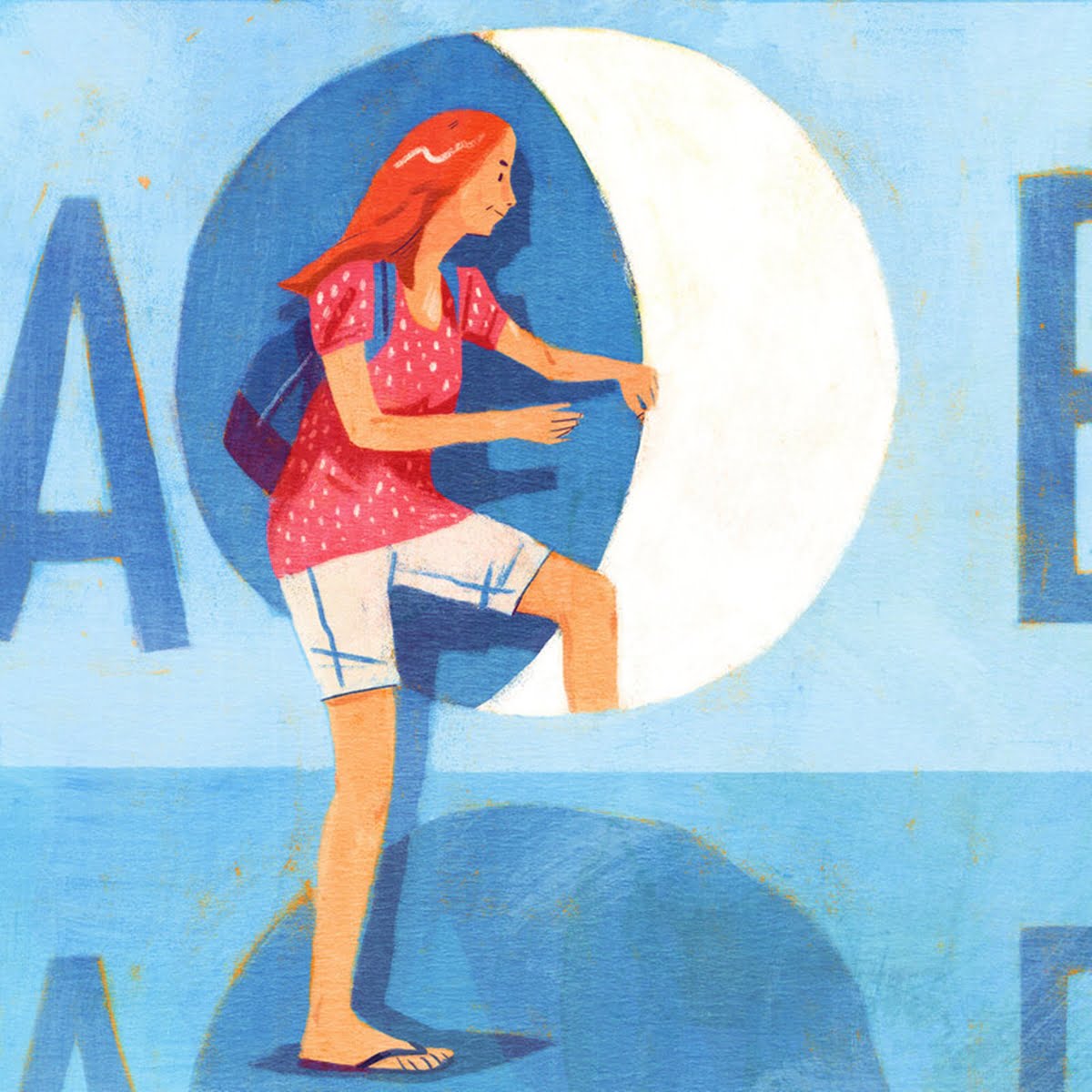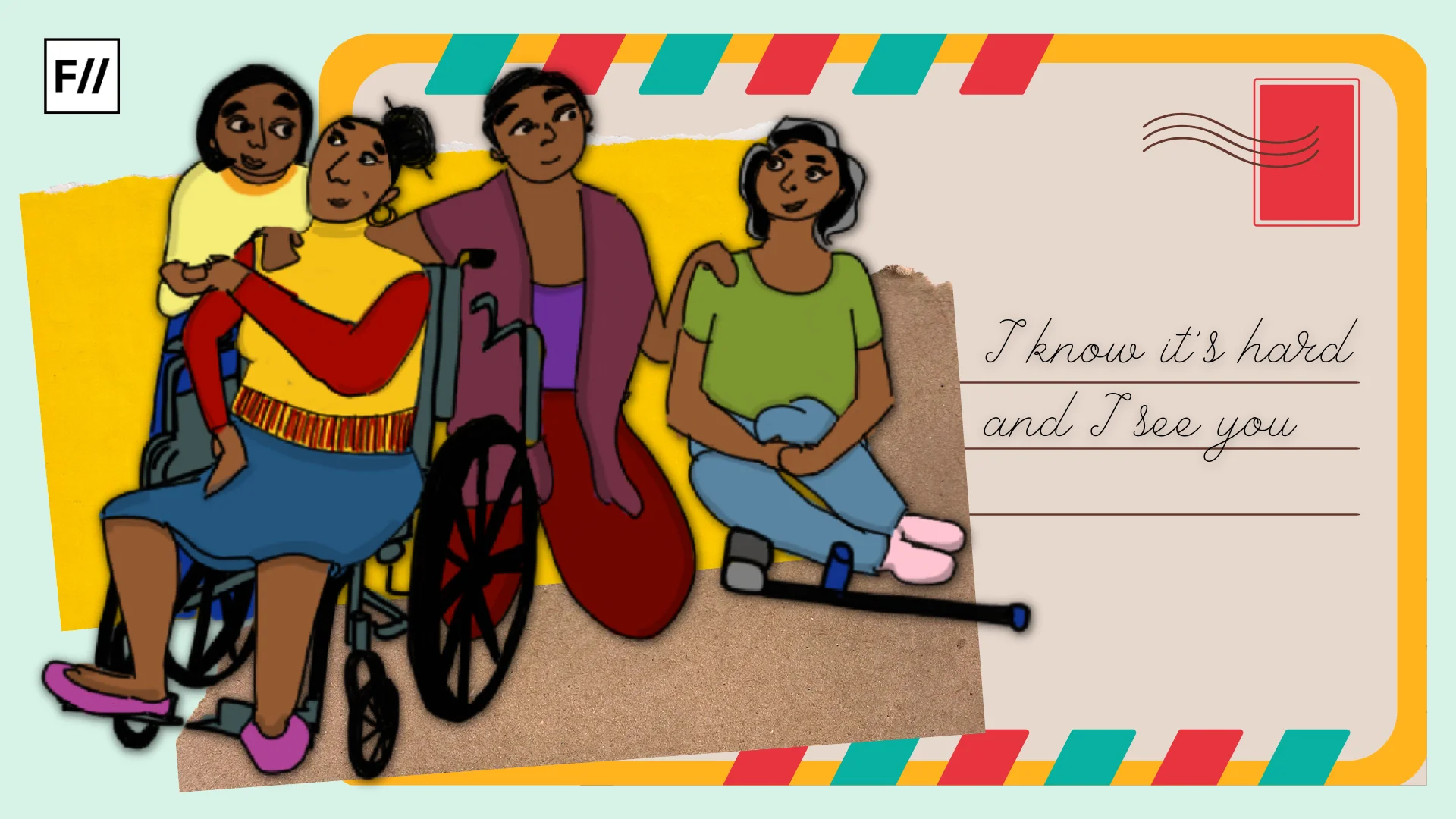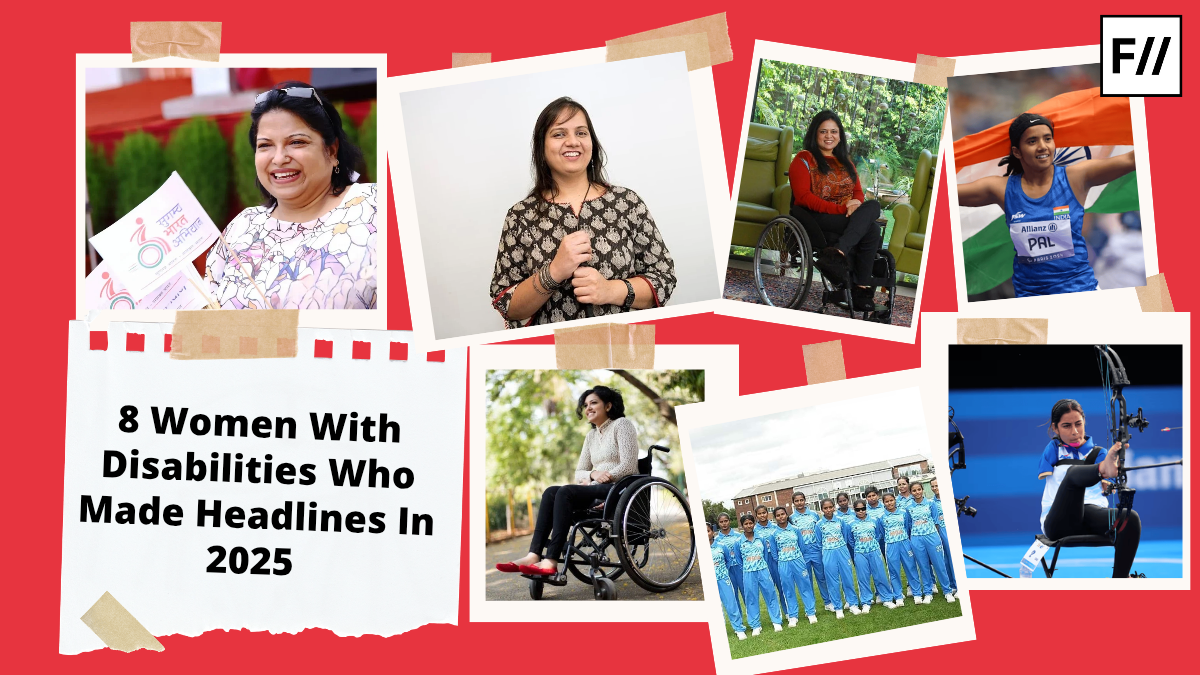The institutions I have studied at, have a ramp here or there and a single accessible bathroom in an entire building of 300 residents in the hostel (also often a place that is used by temporarily-abled students for less fruitful purposes). This is just one of the reasons why the school and college campus as a disabled woman that I have been on have been less than accessible.
Accessibility to infrastructure within educational institutions is not just the icing on a cake, but an entire cake itself. It is not an ornament, a decoration or a luxury. It is a necessity, a right.
Also read: Taking Up Space: The Anxieties Of A Disabled Woman Going To The Grocery Store
What makes school and/or college campus accessible is a mixture of empathy, acceptance, active listening, inclusive education and plenty of understanding and accommodation to make it truly disabled-friendly. I studied at a school where the majority of the children were non-disabled. As a result of which, I had no recognition with my identity. There was no representation of disability in my life.
During my school years, I was subjected to various forms of exclusion and patronization. I was surrounded by people who could’ve chosen to understand my unique subjective experiences and how I hated to be called words like “an inspiration”, and “God’s special creature”, but chose not to.
At school campus as a disabled woman I was subjected to various forms of exclusion and patronization. I was surrounded by people who could’ve chosen to understand my unique subjective experiences and how I hated to be called words like “an inspiration”, and “God’s special creature”, but chose not to.
Educational institutions often exclude disabled students from their curriculum, evident especially in the language employed. There is a certain invisibility in the air, an invisibility that creeps in every time authors used wrong terminology in books to describe disability (focused on the impairment and not the disability itself)
This same invisibilisation materialises when a teacher refuses to understand the perspective of a disabled student and screams at them to “catch up” with the rest of the class, a course curriculum that conveniently excludes disability and the distinct, inhumane realities it comes with.
In school and college campus, often the places where a child spends most of their time in a day, ceases to be a safe space when a disabled child gets bullied and called names, due to the insensitivity that prevails among the other students and to address which, the institutions themselves have done almost too little.
This invisibilisation of a disabled child’s needs pushes them to solitude and loneliness, for instance the times when I sat and had my lunch alone.
I had a stroke when I was nine years old. I was in fourth standard. Now, when you have a stroke at that age, you’re often confused. As a child, you’re expected to be happy. So, I chose to be happy instead of conflicted by delving too deep into what I had endured.
I have been privileged to have got to grow up in a very protected household, to parents who hid their worries from me. They never treated me differently or made me feel othered. I was always made to feel welcome and belonged. The reason that I’m specifically mentioning this is because often, disabled children are either considered too fragile and hence, fussed over, or they are isolated, both ways in which it is underlined over and over that they are “not normal” just enough.
But in school, when I walked in after the stroke, I could see that I was evidently “othered”. I was always seated at the very front of my class when I wrote my tests. I was always made to sit in another room when I gave my exams. I was always singled out, always made to feel different, always made to feel like others are doing me a “favour’’ by staying with me through lunch break and assembly, always picked on for being “allowed’’ to come late to school (my medicines would often make me feel drowsy and the headmistress had permitted me to come to school at 11am everyday instead of the regular 8:30am).
When I was told by a teacher that I shouldn’t go on the class trip because “there’ll be no one to take care of me’’, even though my mother was actively encouraging me to go, I never expressed my anger. I didn’t end up going, even though my friends did.

I was singled out every time I completed my assignment on time with resounding claps from the teacher who called me an “inspiration’’.
I’ve received awards in school for simply “existing’’. The basic assumption behind this inspirational porn narrative of disabled people fed to us by prominent media houses is how non-disabled people are impressed by the fact that disabled people simply are, “despite their debilitating disabilities”, doing great things.
I’ve received awards in school for simply “existing’’. The basic assumption behind this inspirational porn narrative of disabled people fed to us by prominent media houses is how non-disabled people are impressed by the fact that disabled people simply are, “despite their debilitating disabilities”, doing great things.
And so I’ve been called an inspiration only after I acquired a disability. I was supposedly inspiring people just because of three things a) I was disabled b) I existed c) I got good grades.
At the same time, I would look the other way when classmates would whisper to each other about me. From a class of 50 children, the teacher would pick me to read out two pages from a chapter to give me a false sense of agency, even though they knew about my speech difficulties and exhaustion.
As a woman with speech difficulties, and as a person who was made to feel different wherever she went, this led to a a deep-seated fear setting in. I began to distinctly dislike my own voice. This fear further manifested in various forms such as forcing myself to stay quiet and not speak up in class, panicking when people told me that they couldn’t understand what I was saying and that I should perhaps repeat what I wanted to say. I sensed a a certain non-inclination to make new friends because I was fearful they wouldn’t accept me for who I was. As a result, I stayed quiet and hardly raised my voice.
Sometimes, I wouldn’t talk for an entire day.
There was nothing in-between ridicule and glorification that I received at the school and college campus as a disabled woman, when that is what I would have preferred.
In conclusion, how can school and college campus be made an inclusive space for disabled people?
Firstly, it is important to never underestimate anybody’s journey or anybody’s ability to change the world, no matter how weak or incapable they might seem.
This is a lesson for me too because I never believed in myself, and was full of internalised ableism due to a childhood full of hospitals and doctors telling me that I can never walk again.
Secondly, it is important that we understand disability need not always be related to physical abnormalities. Some people have invisible disabilities–which can’t be seen on the surface level. For instance, chronic illnesses, pain, mental health concerns, etc. It is our job to honour all disabilities and validate their existence. Kindness is paramount.
Also read: Taking Up Space: Any Match For A Disabled Bride, Sima Aunty?
Believe children when they tell you that they need a sick day. Believe children when they say they need rest. Believe children when they say they’re in pain.
Teach children to embrace their differences through sensitivity and awareness-generation workshops. Children with disabilities just need genuine kindness, patience and empathetic listening. Teachers could take out extra time after classes to explain concepts.
Lastly, alter your terms–“D for Disability“. This particular word has given me immense power over the years. When I was 10 years old, I was utterly scared to say “disability”. It was only with time that I realised the significance of the word “disability”. Not only does it represent my journey but it also represents my entire community of people with disabilities. Which is why I believe the terms “person with disability” and not “specially abled” or “differently abled” are better suited.
We are disabled and we are proud of our separate identity! Disability is a celebration.
‘Taking Up Space’ is a column where the author writes about her experiences of navigating so-called mainstream spaces as a disabled womxn. Not an attempt to preach or inspire, she attempts to have conversations on taking up space within her own reality, in conversations and physical spaces such as classrooms, seminars, grocery stores and by extension, in an ableist society rendering disabled individuals as persons with no agency of their own.
Featured Image Source: NPR.org
About the author(s)
Anusha Misra prefers to be called nu, identifies as a disabled, queer woman. They are a disability justice author, curator and editor. They are the founder and Editor-in-chief of Revival Disability Magazine, a magazine on Disability, Sexuality and Intersectional Ableism. They firmly believe that Intersectionality gives disabled women the emotional skin to survive in the world and that vulnerability should be celebrated. According to them, the revolution would be incomplete without disabled joy and dissent.




